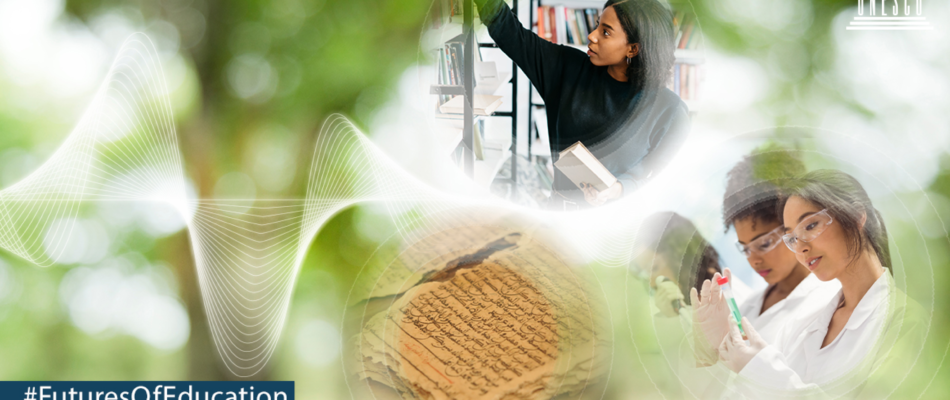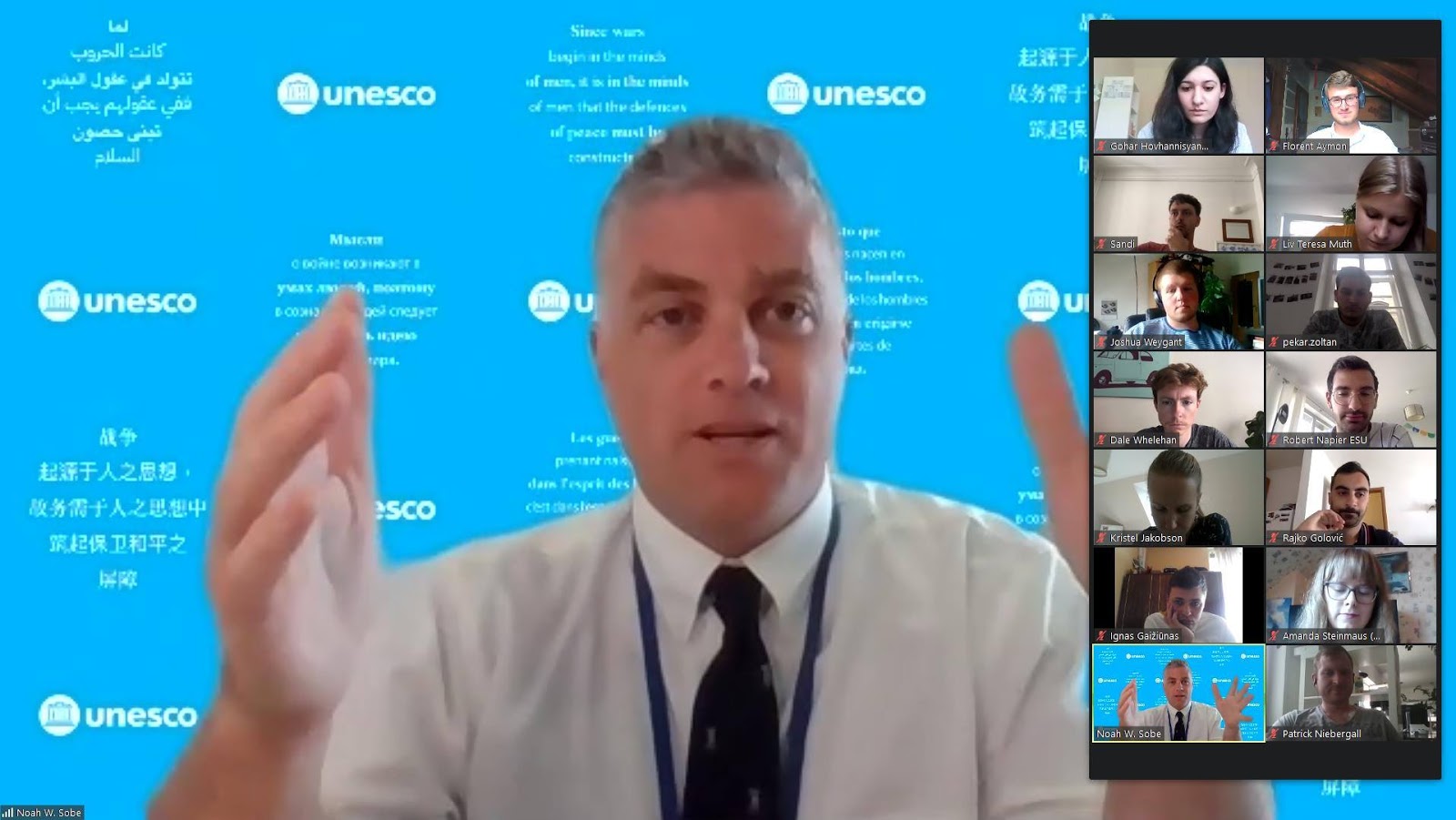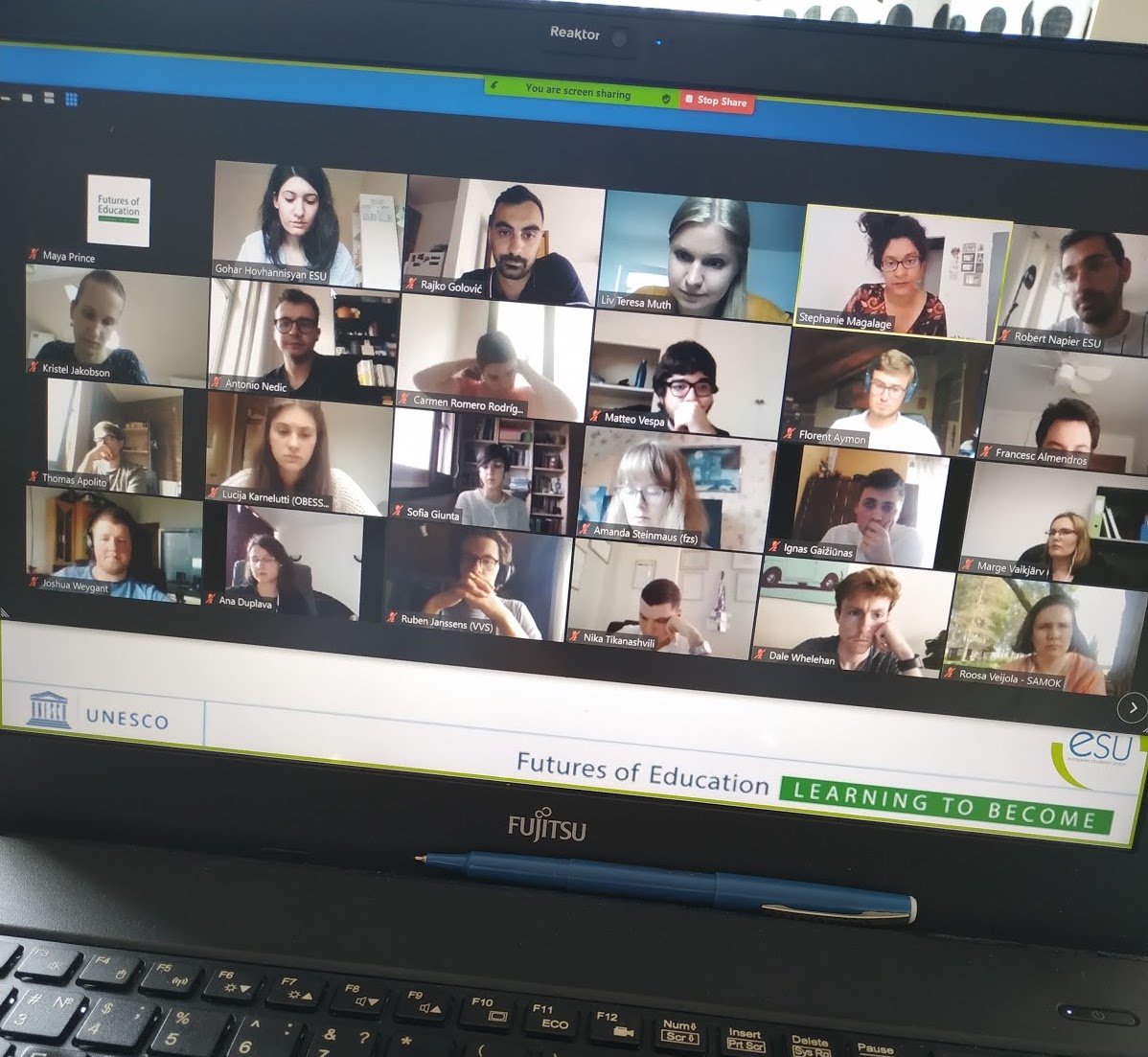
E-conference ”Futures of Education: How do students see it?”
Thinking together so we can act together to make the futures we want
On 15 June, we co-hosted an e-conference in partnership with UNESCO specifically for our ESU membership —with more than 52 people from all over Europe.
The aim of this gathering was to consult our ESU membership on Futures of Education initiative, which was launched by UNESCO in September 2019 at the UNGA in New York. We discussed some possible Futures of Education, broke it down to key topics and brainstormed about it. The participants were challenged to reflect upon the following key areas:
- Human and Planetary Sustainability
- Knowledge Production, Access and Governance
- Citizenship and Participation
- Work and Economic Security

It was inspiring to hear not only the existing challenges that the participants identified these 4 topics but also their visionary thoughts about how to build human-centred futures. It was highlighted that today and in the future, we need to make sure the learning is knowledge-based and applicable in practice. Our world is interconnected and education needs to make sure learners see this. For the future, participants also underlined the need for more participatory education combined with democratic governance mechanisms. Participation, especially when it concerns the students and young people, shouldn’t be seen as a privilege but a right to exercise. One of the discussions suggested that for restructuring the world of education and painting the future through it, we need to see it as a priority on many levels, including on political one.
For the membership of ESU, this was the first involvement in the discussions of the Futures of Education initiative of UNESCO, and we are delighted to take it further and promote engagement of students in this on broader and multiple levels.

UNESCO’s Futures of Education initiative is a multi-year project that seeks to activate debate on how education can shape the future of humanity and the planet. The initiative relies on a broad, open consultative process that involves youth, educators, civil society, governments, business and other stakeholders. Young people can contribute through writing short stories, participating in webinars, taking this 1-minute survey, as well as by spreading a word through social media.
As an outcome, in November 2021 there will be a forward-looking report published and we as ESU are excited to be actively engaged with this initiative.
